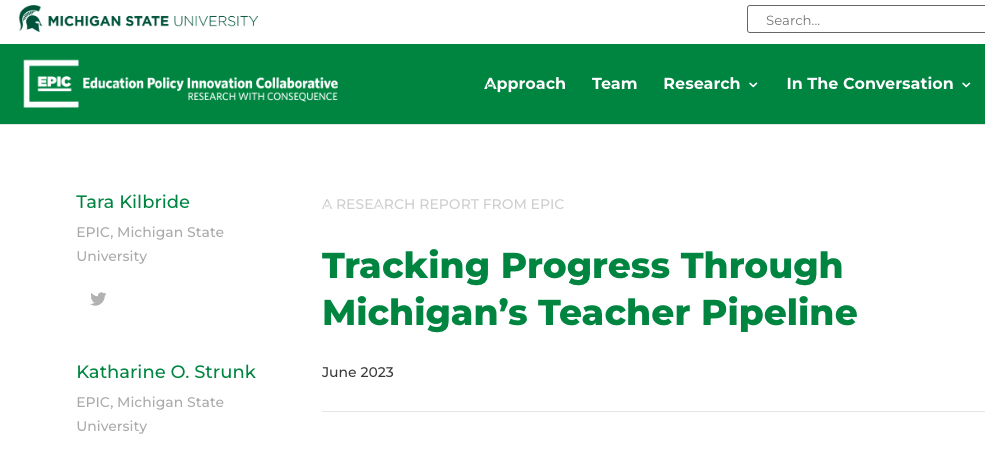Americans’ confidence in higher education has fallen to 36%, sharply lower than in two prior readings in 2015 (57%) and 2018 (48%). In addition to the 17% of U.S. adults who have “a great deal” and 19% “quite a lot” of confidence, 40% have “some” and 22% “very little” confidence.
The latest decline in the public’s trust in higher education is from a June Gallup poll that also found confidence in 16 other institutions has been waning in recent years. Many of these entities, which are tracked more often than higher education, are now also at or near their lowest points in confidence. Although diminished, higher education ranks fourth in confidence among the 17 institutions measured, with small business, the military and the police in the top three spots. This was also the case in 2018, the last time higher education was included in the list of institutions.
In 2015, majorities of Americans in all key subgroups expressed confidence in higher education, with one exception — independents (48%). By 2018, though, confidence had fallen across all groups, with the largest drop, 17 percentage points, among Republicans. In the latest measure, confidence once again fell across the board, but Republicans’ sank the most — 20 points to 19%, the lowest of any group. Confidence among adults without a college degree and those aged 55 and older dropped nearly as much as Republicans’ since 2018.
Even though all subgroups show declining confidence in higher education, significant gaps persist among political, educational, gender and age subgroups. Notably, the only key subgroup with majority-level confidence in higher education is Democrats (59%).
Americans’ confidence in higher education, which showed a marked decrease between 2015 and 2018, has declined further to a new low point. While Gallup did not probe for reasons behind the recent drop in confidence, the rising costs of postsecondary education likely play a significant role.
There is a growing divide between Republicans’ and Democrats’ confidence in higher education. Previous Gallup polling found that Democrats expressed concern about the costs, while Republicans registered concern about politics in higher education.
View complete question responses and trends (PDF download).
Michigan State University’s Education Policy Innovation Collaborative released a study this month that examines a teacher preparation program in Michigan and sheds light on some reasons for the Black teacher shortage.

- Although students of color comprise more than half of schoolchildren in the U.S., Black teachers are largely underrepresented in the educator workforce. [New Leaders]
- By the numbers: 80 percent of the 3.8 million teachers in the U.S. are white, despite the fact that more than half of U.S. schoolchildren are Black, Hispanic, Asian, Native American and mixed races. [The Hechinger Report]
- The small portion of Black teachers has continued to shrink over the last decade, falling from 7 percent in 2011-12 to 6 percent in 2020-21. [The Hechinger Report]
- The study showed that the gap may persist due to leaky teacher preparedness pipelines, showing that Black students in Michigan education programs are far less likely to complete teacher preparation programs and become certified teachers. [The Hechinger Report]
- It also showed a significant drop in prospective Black teachers as they complete their coursework and start teaching in the classroom. [The Hechinger Report]
- Why it matters: Black students are less likely to be suspended and more likely to be placed in gifted and talented classrooms when they have Black teachers. [Sage Journals; The Hechinger Report]
New McKinsey research finds that most higher education students want to continue to incorporate at least some aspects of online learning into their education. However, a significant share of students are dissatisfied with the online experiences their universities offer, signaling that higher education institutions could benefit by evolving their online learning models.
To ascertain which learning models higher education students prefer and why, as well as what they find satisfying about online education and which elements of the online learning experience they value most, they surveyed 7,000 students across 17 countries in the Americas, Europe, Asia, and the Middle East The research covers eight dimensions of the online learning experience encompassing 24 attributes, thereby providing a broad view of what higher education students want.
- Exploring Data Analytics in Higher Education Humanities - May 9, 2024
- Big Deals: New Higher Ed Product News from Element451, MachineTrader, and MathGPT - April 29, 2024
- How to Navigate the Wild West of Microcredentials - March 25, 2024

